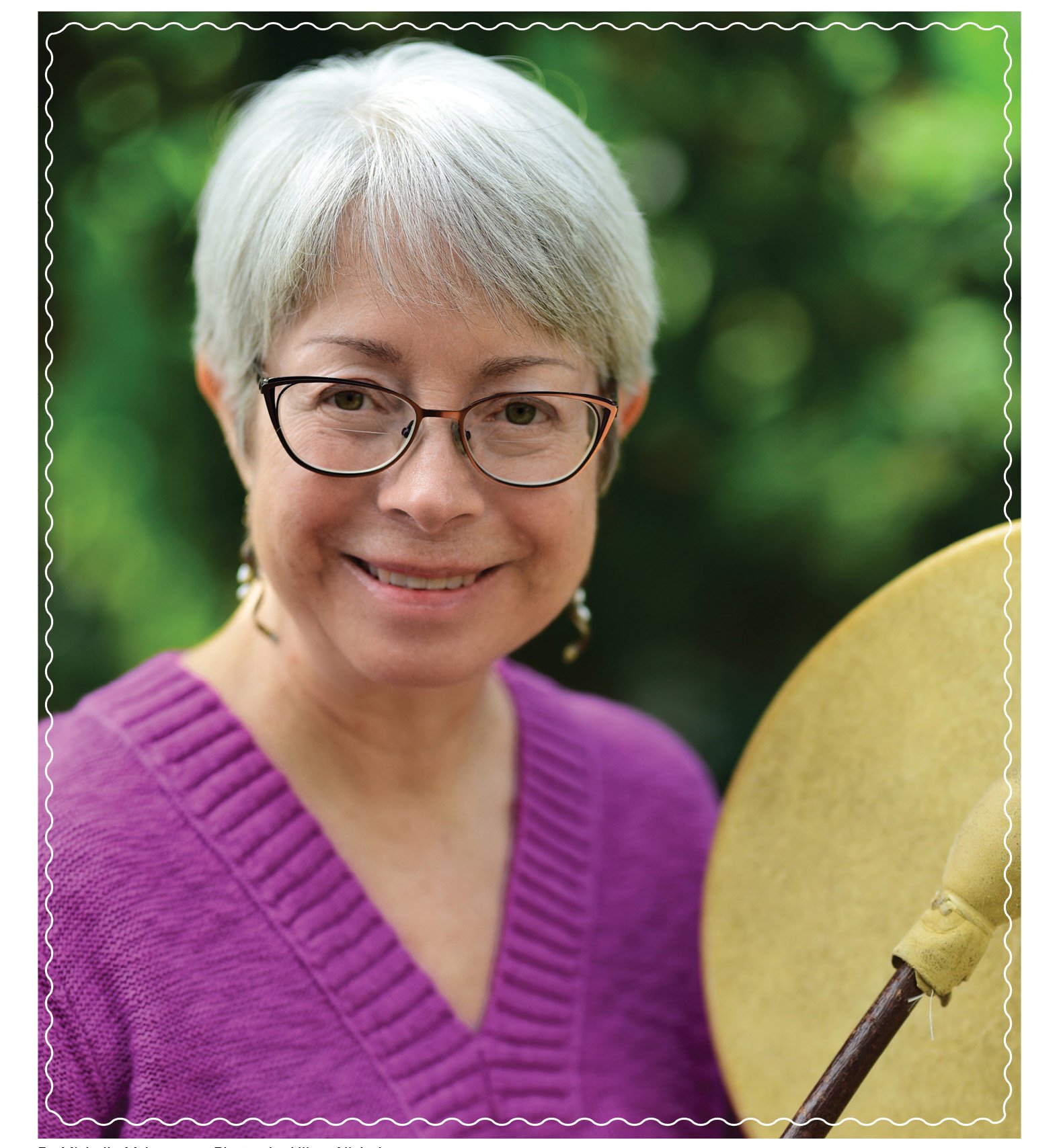By Kathleen Ivanoff
What is missing in many feminist theories is that they do not address the historical and ongoing lack of valuing, cultivating, and supporting what has been traditionally associated with the feminine or “yin” side of life.
Yin and yang are terms that come from Taoism—a way of working with natural flow and balance that arose in ancient China and explains how the basic structure of all dualities, or pairs of opposites, must be in harmony if one wants to abide in peace, health, and happiness.
Here is a diagram to illustrate:
These two kinds of energies are expressed in nature, but through our long history of over-valuing only one side, our cultures, society, and nature itself, have become profoundly imbalanced. Yang energy (associated with masculine traits) is glorified and upheld as an ideal, while yin energy (assigned to the feminine) is denigrated and denied its value as an equal and necessary aspect of life. It is this imbalance, endorsed and disseminated through our most powerful cultural institutions—religion, education, and politics—that maintains the status quo. We have been duped into believing that yin/feminine/female is simply not as valuable as yang/masculine/male. This breakdown of categories, however, is only the most simplistic way of looking at it. Since human beings are also part of nature, everyone has both yin and yang characteristics, regardless of gender identification. Further, and most important, both of these energies can be expressed in both balanced and unbalanced ways.
For example, let’s take one very basic duality: action/rest. Action is associated with yang energy. Action in itself is not inherently positive or negative—it depends totally on what is needed to bring coherence to any given circumstance. The same can be said for its yin opposite, rest. Rest is not bad or good in itself, but a condition that is equally important for balance and harmony. Since the yang polarity is held superior, action is over-valued as a cultural norm. There is even a sense that every moment must be in service to “productivity.” Many feel nagging guilt because they fail to appease the voice in their head that is telling them they haven’t done enough, or are worried that if they pause, stop, and rest, they will lose the capacity to get up again. The speed of life has seemingly increased because we are immersed in conditions that are a result of profound imbalance—the cult of busyness, workaholism, and three coffee shops on the corner.
Now consider action’s opposite—rest. It’s obvious we absolutely do not consider rest to be as important as action—it is more like something that we must do in order to get back to the “real” business of being productive. Many people, even when they are desperately wishing to be able to let go of the day, find they have trouble sleeping, or return from a vacation feeling even more exhausted. We simply do not prioritize the very real need to do nothing—to stop taking in stimulation and responding to it, to have gaps and spaces in our day that allow us to rest, and to actually do less in winter, and not feel defeated. Rest is not a better state than action. It is, and always has been, its equal. But we do not treat it that way.
Everyone benefits when they look into themselves and see how they are currently manifesting both sides of any pair of opposites and try to adjust toward what is needed to feel and function well. It is simple in theory, but it soon becomes obvious that even if we agree to needed change, the velocity of habits coming from internalized societal values pushes back when we try to prioritize differently. If you recognize this as true, ask yourself: How am I maintaining this distorted bias in my own life?
I suggest we are struggling with inequity because there is still no genuine application of value given to the yin side of life. Yin qualities are simply not appreciated as equally important. As an example, there are now many organizations that give scholarships and encouragement to girls and women who want to pursue education in STEM (science, technology, engineering, and mathematics) fields. These are traditionally the domain of male authority and power and still lead to the kind of career path that carries high prestige and cultural validation. But who is offering prestigious scholarships and awards to those who want to be teachers, nurses, and social workers? Any profession traditionally associated with the realm of the feminine is still very much undervalued, both in esteem and financial compensation.
Yin feminism is for everyone. By drawing attention to the relative lack of value that we maintain regarding yin characteristics, my hope is that we begin to understand things in terms of these energies and how they are embodied, rather than through the more rigid and externalized categories of male and female that tend to embattle people and which ignore all of the subtleties of how sex, gender, and energy, are expressed.
Even use of the term “patriarchy” just seems to turn off most people these days, as it has become perceived shorthand for expressing blame and excoriating criticism of men while generally ignoring how harmful it is to them, too. Patriarchy is poisonous because it has convinced everyone that “yangism,” or exaggerating the value of traits associated with masculinity and further deformed by a dominator mentality, is somehow the recipe for respect and success.
Why has feminism failed to create true parity thus far, and instead, often become yet another way people divide against each other? Feminists fought for and were grudgingly given a green light for women to pursue some of the benefits that most men have enjoyed as birthright. These include education, voting rights, and permission to compete for positions of power and authority outside of the only role within which women have traditionally been allowed power: mother.
This brings me to the area of politics and women. As we saw in 2016, there was a great eagerness among many people to see Hillary Clinton become the first female president. However, I don’t think you have to do much scratching below the surface to see that her political policies aligned themselves with some of the worst aspects of “yangism.” As Secretary of State, she supported positions such as world-wide fracking and numerous military interventions. Whether she took these positions to show strength or because she actually believed they would be helpful doesn’t matter—she represented the status quo, and I believe this is the reason she failed. We must look deeper than the obvious category of gender. We must look toward embracing policies that support the qualities currently missing in our culture that would relieve the unnecessary suffering perpetuated by the notion that rugged individualism is an attainable, superior goal, and that we can continue to plunder Earth’s resources without consequences.
This year, we are again facing a choice that will determine how we either continue to support profound imbalance, or course-correct and choose a way that will bring about the kind of change necessary to survive and thrive. The truth is that we already have the means to address the problems we face—what we don’t yet have is the commitment to allocate our resources and energy in this direction. Even on a symbolic level, if the majority of our taxes are funding the war machine, how can we expect peace?
It might be tempting to assume that political centrism would be the right choice for balance. Again, however, we must look deeper than the rhetoric that embraces a return to status quo as “normal”—something we just need to “get back to.” No—we are in crisis because thousands of years of lopsided values brought us here, and we are really only just beginning to acknowledge that this is not sustainable. Further, we are still not attending to the root cause!
Yin feminism is a direct way of considering and addressing a standard that will restore and replenish life on both an individual and cultural level. Sadly, it appears that we are not yet ready in our society to see a woman in the ultimate position of power who is not upholding the yang status quo. Let us consider what is most important, nourishing, and enlivening, and see what seems to block the ability to access and implement it. As individuals, we have limited capacity to do this if our systems are allocating all our resources for the opposite intent. Now is the time that great change is imminent. Feminism must shift into a clear recognition that what is allied with the feminine—restoration, nurturing health and well-being, emotional depth, and interdependence—is not something to disassociate from in order to garner respect. We must embrace these qualities, live them, and vote them in.
Kathleen Ivanoff holds a master’s degree in Gender Studies and another in Clinical Psychology. As the former program director for Jewel Heart, she worked closely with Gelek Rimpoche to establish the teaching curriculum and taught various courses in Buddhist meditation. She currently teaches creative writing at EMU and has a private counseling practice. To contact her, email kathleenivanoff@gmail.com.
































































































































































































The Divine Feminist dives deeply into an age-old notion of misalignment within people and the universe. Author Ceryn Rowntree examines the imbalance she believes to be prominent between the Goddess and that which holds a feminine energy and the patriarchal forces that seem to reign.